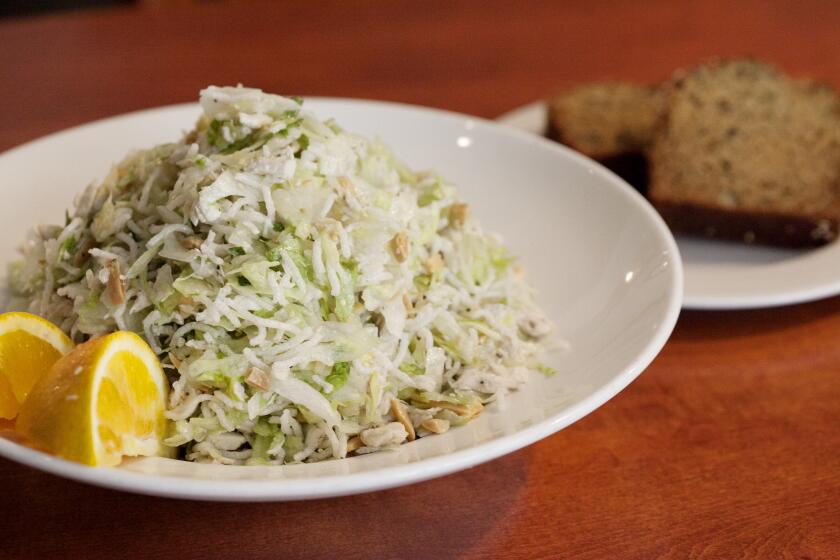Tropical fruit has reputation as a cancer fighter
- Share via
The mangosteen, more formally known as Garcinia mangostana, has been dubbed the “queen of tropical fruit” in its native Malaysia. The sweet, white flesh is used to make jam, syrups, juices and ice cream -- or eaten solo to cap off a meal. The burgundy-colored peel is a rich source of xanthones, plant compounds renowned for their powerful antioxidant activity. In southeast Asian folk medicine traditions, the fruit has been used to treat stomach pains, diarrhea, infections and some sexually transmitted diseases. Today, mangosteen is attracting scientific -- and popular -- attention for the potential ability to treat some types of cancer and bacterial infections.
-- Elena Conis
Uses: Mangosteen juice and other supplements are also used in attempts to lower cholesterol, increase energy levels and strengthen the immune system.
Dose: Manufacturers generally recommend about one ounce of mangosteen juice or about 500 milligrams in pill form daily.
Precautions: Diabetics should note that mangosteen products can be high in sugar.
Research: Mangosteen has shown promise against several types of cancer cells -- including breast cancer and leukemia -- in the test tube and in a few animal models, but there’s no clinical trial evidence to back up the findings. Some compounds extracted from the fruit have also demonstrated the ability to kill the bacteria that causes tuberculosis. In vitro studies published in several scientific journals last year suggested that compounds from mangosteen might be effective against the drug-resistant bacteria known as methicillin-resistant Staphylococcus aureus and vancomycin-resistant enterococci -- but again, such findings are limited to test-tube experiments.
*
Dietary supplement makers are not required by the U.S. government to demonstrate that their products are safe or effective. Ask your healthcare provider for advice on selecting a brand.
More to Read
Eat your way across L.A.
Get our weekly Tasting Notes newsletter for reviews, news and more.
You may occasionally receive promotional content from the Los Angeles Times.










